 |
|
|
Don't Miss Out! A Few Spaces Left ~ Register Today for IPFCC’s Intensive Training Seminar
Seminar Scholarships Available for Patient and Family Advisors from Ambulatory Settings
|
|
There is still time to register for IPFCC’s internationally acclaimed seminar, Moving Forward with Patient- and Family-Centered Care: Partnerships for Quality and Safety, An Intensive Training Seminar, with leadership support from Ann & Robert H. Lurie Children's Hospital, to be held April 4-6, 2016, in Chicago, Illinois.
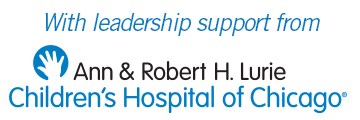 Bring your interdisciplinary team to this intensive training seminar, including your physicians, nurses, social workers, child-life specialists, long-term care partners, and patient and family advisors. Health care providers, patients, and families, working together as partners in care—across the continuum of care—can improve the patient and family experience, and the quality, safety, and the cost of care. Bring your interdisciplinary team to this intensive training seminar, including your physicians, nurses, social workers, child-life specialists, long-term care partners, and patient and family advisors. Health care providers, patients, and families, working together as partners in care—across the continuum of care—can improve the patient and family experience, and the quality, safety, and the cost of care.
Seminar Scholarships Available for Patient and Family Advisors From Ambulatory Settings
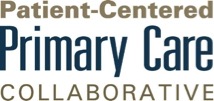 IPFCC is partnering with the Patient-Centered Primary Care Collaborative (PCPCC), one of the Support and Engagement Networks for the Transforming Clinical Practice Initiative (TCPI) funded by the Centers for Medicare and Medicaid (CMS). PCPCC is providing resources for patient and family advisors who are—or will be—working with either a Practice Transformation Network (PTN) or any practice within a PTN to attend IPFCC’s upcoming Moving Forward with Patient- and Family-Centered Care Intensive Training Seminar in Chicago. IPFCC is partnering with the Patient-Centered Primary Care Collaborative (PCPCC), one of the Support and Engagement Networks for the Transforming Clinical Practice Initiative (TCPI) funded by the Centers for Medicare and Medicaid (CMS). PCPCC is providing resources for patient and family advisors who are—or will be—working with either a Practice Transformation Network (PTN) or any practice within a PTN to attend IPFCC’s upcoming Moving Forward with Patient- and Family-Centered Care Intensive Training Seminar in Chicago.
PCPCC staff will attend the seminar and meet with scholarship recipients. IPFCC and PCPCC are creating a network of patients and families prepared to partner in change and improvement. Over the next several years, through partnerships among health care professionals and patient and family advisors, the TCPI will provide an opportunity to redesign primary and ambulatory care.
For more information about Chicago seminar scholarships, contact Amy Gibson at PCPCC at agibson@pcpcc.net.
CEU Credits Available for Nurses, Physicians, Social Workers, Child Life Specialists, and Long Term Care Administrators
Continuing Education credit is available for:
Nurses may be awarded 22.5 contact hours, based on the approval of the Maryland Nurses Association, an accredited approver by the American Nurses Credentialing Center’s Commission on Accreditation.
Physicians may be awarded up to 27.5 prescribed credit(s) by the American Academy of Family Physicians. Physicians should claim only the credit commensurate with the extent of their participation in the activity.
Social Workers ~ The National Association of Social Workers has approved the seminar for 22.5 Social Work continuing education contact hours.
Child Life Specialists ~ For child life specialists seeking professional development hours, the content of the IPFCC seminar is related to the Child Life Council's exam content outline: Domain 1 - Professional Responsibility. A certificate of attendance will be provided as documentation of your IPFCC seminar participation.
Long Term Care Administrators ~ The National Continuing Education Review Service (NCERS) of the National Association of Long Term Care Administrator Boards (NAB) has approved this program for 31.50 clock hours and 18.75 participant hours.
To receive a certificate of attendance for CEU purposes, participants are required to attend the program in its entirety, sign-in daily, and complete the daily online seminar evaluations by May 6, 2016.
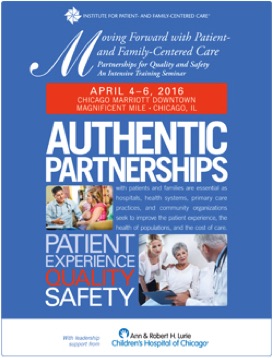
|
Interdisciplinary Task Force Recommends Team-Based Care with Patients and Families as Part of the Team
|
|
 In the recently released, Collaboration in Practice: Implementing Team-Based Care, a Report of the American College of Obstetricians and Gynecologists’ Task Force on Collaborative Practice, an interdisciplinary task force* recommended that “physicians across all specialties employ team-based care.” In the recently released, Collaboration in Practice: Implementing Team-Based Care, a Report of the American College of Obstetricians and Gynecologists’ Task Force on Collaborative Practice, an interdisciplinary task force* recommended that “physicians across all specialties employ team-based care.”
Team-based care is defined as “the provision of health services to individuals, families, and/or their communities by at least two health care providers who work collaboratively with patients and their families—to the extent preferred by each patient—to accomplish shared goals within and across settings to achieve coordinated, high-quality care…”
The peer-reviewed report notes that the “team includes health care providers as well as nonclinical team members. Also, each team is unique and, although the patient [and family, to the extent preferred by each patient] always will remain a team member, other members of a team are fluid and may change as patient care needs change.”
The report includes the following guiding principles:
- The patient and families are central to and actively engaged as members of the health care team;
- The team has a shared vision;
- Role clarity is essential to optimal team building and team functioning;
- All team members are accountable for their own practice and to the team;
- Effective communication is key to quality teams; and
- Team leadership is situational and dynamic.
It is imperative that goals are mutually decided and agreed upon by the patient, the family (according to patient preference), and the health care team. The report also identifies as a crucial strategy the education of team members on the beneficial effects of partnering with the patient and family.
According to the report, team-based care will help to achieve the Triple Aim of "improving the experience of care of individuals and families; improving the health of populations; and lowering per capita costs." In addition, team-based care “should respond to emerging demands and reduce undue burdens on health care providers.”
IPFCC participated in the Task Force that developed this report and, along with 18 other leadership organizations, endorsed it.
*The task force included representatives from the ACOG, the American Academy of Pediatrics, the American College of Physicians, the American Academy of Physician Assistants, the American Association of Nurse Practitioners, the American College of Clinical Pharmacy, the American College of Nurse-Midwives, the Institute for Patient- and Family-Centered Care (IPFCC), the National Association of Nurse Practitioners in Women's Health, and the National Partnership for Women & Families.
|
Family Presence During Resuscitation (FPDR)
|
|
According to the American Association of Critical-Care Nurses (AACN) Practice Alert (2016) on Family Presence During Resuscitation and Invasive Procedures,
“Evidence is mounting that family presence during resuscitation (FPDR) and invasive procedures is beneficial to patients and their families.”
 The Alert advises that the expected practice should include giving family members (as defined by the patient) of all patients undergoing resuscitation and invasive procedures the option to “be present at the bedside per the patient’s wishes.” Additionally, “All patient-care units should have an approved written practice document (ie, policy, procedure, or standard of care) for presenting the option of family presence during resuscitation and bedside invasive procedures, including the roles and responsibilities of the family presence facilitator.” The Alert advises that the expected practice should include giving family members (as defined by the patient) of all patients undergoing resuscitation and invasive procedures the option to “be present at the bedside per the patient’s wishes.” Additionally, “All patient-care units should have an approved written practice document (ie, policy, procedure, or standard of care) for presenting the option of family presence during resuscitation and bedside invasive procedures, including the roles and responsibilities of the family presence facilitator.”
The Alert states that nursing practice should include:
- Written policies and procedures that support family presence during resuscitation and invasive procedures, including specific components listed in the Alert;
- Proficiency standards for staff;
- Rate of compliance with offering families the option of family presence during resuscitation and invasive procedures; and
- Documentation standards for family presence.
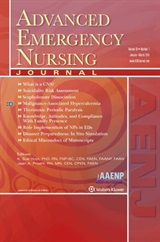 A recent study, Evaluation of Physicians' and Nurses' Knowledge, Attitudes, and Compliance With Family Presence During Resuscitation in an Emergency Department Setting After an Educational Intervention by Ferrara, G., et al, in the Advanced Emergency Nursing Journal (January/March 2016), evaluated emergency department physicians and nurses “on their knowledge of and adherence to the hospital’s written policy on FPDR and their attitudes to FPDR” after an evidence-based educational intervention. The study showed that “the educational intervention had no effect on the physicians and nurses attitudes for FPDR, but it did change behavior. Of the events involving professionals who were exposed to the educational intervention, family members were present 87.5% of the time. In contrast, only 23% of the events involving professionals who did not receive the educational intervention had families present.” A recent study, Evaluation of Physicians' and Nurses' Knowledge, Attitudes, and Compliance With Family Presence During Resuscitation in an Emergency Department Setting After an Educational Intervention by Ferrara, G., et al, in the Advanced Emergency Nursing Journal (January/March 2016), evaluated emergency department physicians and nurses “on their knowledge of and adherence to the hospital’s written policy on FPDR and their attitudes to FPDR” after an evidence-based educational intervention. The study showed that “the educational intervention had no effect on the physicians and nurses attitudes for FPDR, but it did change behavior. Of the events involving professionals who were exposed to the educational intervention, family members were present 87.5% of the time. In contrast, only 23% of the events involving professionals who did not receive the educational intervention had families present.”
This study supports that, in addition to having written policies and procedures, it is crucial also to have ongoing education of the staff in order to convey respect for families' choices and support them in being present during resuscitation of loved ones.
|
PFAC in Canada Works to Ensure Family Presence Policy
|
 As reported by Cheryl Browne, in Visitors Welcomed at RVH 24/7 in the February 11, 2016, Barrie Examiner, Royal Victoria Regional Health (RVH) Centre, in Ontario, Canada, implemented a family presence policy, and now welcomes families of patients 24 hours a day, 7 days a week. According to President Janice Skot, “We want our patients and our families to have the best experience possible while in our care. And, having loved ones at their bedside when they need them can go a long way to improving the patient experience, for improving care and improving recovery.” As reported by Cheryl Browne, in Visitors Welcomed at RVH 24/7 in the February 11, 2016, Barrie Examiner, Royal Victoria Regional Health (RVH) Centre, in Ontario, Canada, implemented a family presence policy, and now welcomes families of patients 24 hours a day, 7 days a week. According to President Janice Skot, “We want our patients and our families to have the best experience possible while in our care. And, having loved ones at their bedside when they need them can go a long way to improving the patient experience, for improving care and improving recovery.”
This change in policy—removing the former limited "visitation" hours of 2 pm to 8 pm—is due, in part, to Ed Harper, former Simcoe County Reform Member of Parliament. Ed is a member of RVH's Patient and Family Advisory Council (PFAC), which worked to remove this restriction following Ed's experience with his late wife, Rosemary. When Ed visited Rosemary during her hospitalization, he said, “It was a difficult time and I was probably here more than I should have been. But I needed to be here for her and for me. I did what I could to help the care team... No one ever asked me to leave,” despite the then restrictive visiting policy.
Ed Harper wanted to ensure that other families would also have this same option to be with their hospitalized loved ones at any time. So Ed worked with Nancy Savage, an Executive Vice-President at RVH on how best to implement the new 24/7 policy. The hospital PFAC worked to remove the restrictive policy. As a part of its work to implement the family presence policy, the PFAC team communicated with area residents, hospital staff, physicians, and patients' families. The feedback was overwhelmingly positive. Now all loved ones, even in nontraditional families—including spouses, friends, neighbors, and partners—are welcome to be with their loved ones who are hospitalized. In the words of Nancy Savage, "RVH welcomes families 24 hours a day, seven days a week, 365 days of the year, and we couldn't be more proud.”

On November 10, 2015, Canadian Foundation for Healthcare Improvement (CFHI) launched a national campaign in Canada, Better Together: Partnering with Families Campaign based on the international campaign initiated by IPFCC in June 2014. CFHI is encouraging hospitals to review their policies with a view to adopting family presence policies. These policies/guidelines enable patients to designate family members and loved ones who can stay by their side 24 hours a day, seven days a week. See related article, Canadian Foundation for Healthcare Improvement Launches Better Together in Canada, Pinwheel Pages November 2015.
IPFCC's July 2016 International Conference will feature a session, Better Together—Spreading Family Presence Policy and Practice in Canada, featuring representatives from CFHI and two leading Canadian health authorities who will share how they planned and implemented sustainable culture change and the outcomes.
Learn more about IPFCC’s Better Together Campaign, and take advantage of the free online resources and toolkit.
|
Thanks to the 2016 Sponsors of IPFCC's PFACNetwork
|
 Thanks to the 4 sponsors of IPFCC’s PFACNetwork for 2016, showing their commitment to patient- and family-centered care and authentic partnerships with patients and families. Boston Children’s Hospital, The Children’s Hospital of Philadelphia, and Providence Health Care are continuing sponsors, and IPFCC welcomes Anne Arundel Medical Center, as the newest sponsor. Thanks to the 4 sponsors of IPFCC’s PFACNetwork for 2016, showing their commitment to patient- and family-centered care and authentic partnerships with patients and families. Boston Children’s Hospital, The Children’s Hospital of Philadelphia, and Providence Health Care are continuing sponsors, and IPFCC welcomes Anne Arundel Medical Center, as the newest sponsor.
PFACNetwork—Patient and Family Advisors and Leaders Network—is an online forum for anyone interested in the work of patient and family advisory councils, and other collaborative efforts with patient and family advisors in all health care settings. Originally developed with the support of the Cincinnati Children’s Hospital, the PFAC Network, hosted by IPFCC since October 2010, is a lively forum that now includes nearly 1300 members who participate in discussion forums and special topic groups, ask questions and communicate experiences, share policies and documents, and more.
The PFAC Network is accessible from the Tools for Change section of the IPFCC website.
|
|
In This Issue |
- Don't Miss Out! A Few Spaces Left ~ Register Today for IPFCC’s Intensive Training Seminar ~ Seminar Scholarships Available for Patient and Family Advisors from Ambulatory Settings
- Interdisciplinary Task Force Recommends Team-Based Care with Patients and Families as Part of the Team
- Family Presence During Resuscitation (FPDR)
- PFAC in Canada Works to Ensure Family Presence Policy
- Thanks to the 2016 Sponsors of IPFCC's PFACNetwork
- Hospital Errors ~ Families Play a Vital Role in Improving Safety and Preventing Medical Mistakes
- Now Available! Getting Started with Patient- and Family-Centered Care Videos and Guide
- IPFCC Webinars
- AHRQ Health Care Innovations Exchange ~ Newly Released Video Features Hospital Patient Advisor
- Primary Care Corner ~ TCPI Change Package: Transforming Clinical Practice
- The 7th International Conference on Patient- and Family-Centered Care
|
Hospital Errors ~ Families Play a Vital Role in Improving Safety and Preventing Medical Mistakes
|
 Evidence supports the vital role that parents and other family members can play in improving patient safety and preventing medical errors. One example is the recent article, Parent-Reported Errors and Adverse Events in Hospitalized Children, JAMA Pediatrics (Online February 29, 2016), which reports on a prospective study within two general pediatric units at a children’s hospital. The study showed that parents frequently reported—via written surveys—errors and preventable adverse events, many of which were not documented in the medical record. The authors* concluded, “Families are an underused source of data about errors, particularly preventable AEs [adverse events].” The study further noted that hospitals “may wish to consider incorporating family reports into routine safety surveillance systems.” Evidence supports the vital role that parents and other family members can play in improving patient safety and preventing medical errors. One example is the recent article, Parent-Reported Errors and Adverse Events in Hospitalized Children, JAMA Pediatrics (Online February 29, 2016), which reports on a prospective study within two general pediatric units at a children’s hospital. The study showed that parents frequently reported—via written surveys—errors and preventable adverse events, many of which were not documented in the medical record. The authors* concluded, “Families are an underused source of data about errors, particularly preventable AEs [adverse events].” The study further noted that hospitals “may wish to consider incorporating family reports into routine safety surveillance systems.”
In a Reuters Health article, Mom And Dad Often Catch Hospital Errors Doctors Missed, reporting on this JAMA Pediatrics study, Lisa Rapaport quotes the lead author, Dr. Alisa Khan—a pediatrics researcher at Harvard Medical School and Boston Children’s Hospital: “Parents may notice different things than health care providers do, and thereby provide complementary information that can only help make care safer.” Read Lisa’s article.

Children’s Hospitals’ Solutions for Patient Safety is a great resource for health care professionals and families to learn more about the strategies that 90 pediatric hospitals are undertaking to drastically reduce harm. Part of the strategy to help reduce the risk of preventable harm includes acknowledging that patients and families are a critical part of the care giving team, and empowering patients and families to be informed and active members of the team.
Next month’s IPFCC Moving Forward with Patient- and Family-Centered Care: Partnerships for Quality and Safety, An Intensive Training Seminar in Chicago, from April 4-6, will include a session, The Power of “All Teach, All Learn” ~ Engaging Patients and Families as Partners in Safety Across Organizations. This session, taught by representatives from 3 of the 90 pediatric hospitals, will discuss the work of this organization. Faculty include Juliette Schlucter, Director of The Center for Child and Family Experience at the Sala Institute for Child and Family-Centered Care at NYU Langone Medical Center; Carol Kemper, Vice President, Quality & Safety, Children’s Mercy Kansas City; and Judy Doyle, Parent Mentor/Advisor Coordinator, Akron Children’s Hospital.
See related article, above left, about IPFCC's Intensive Training Seminar, and the availability of scholarships for patient and family advisors to attend.
*Khan, A., Furtak, S.L., Melvin, P., Rogers, J.E., Schuster, M.A., & Landrigan, C.P.
|
Now Available! Getting Started with Patient- and Family-Centered Care Videos and Guide
|
|
Two new videos produced by the National Partnership for Women & Families in partnership with IPFCC—Patient- and Family-Centered Care: The Valley Hospital's Journey and Patient- and Family-Centered Care: Building the Foundation are now available for purchase from the IPFCC Online Store.
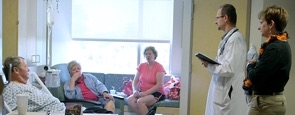
These videos, sold together along with the companion discussion guide, Getting Started with Patient- and Family-Centered Care, are a wonderful educational resource for hospitals and health systems to use as they plan to advance patient- and family-centered care and develop effective partnerships with patients and families. This resource includes the leadership and change strategies to successfully advance PFCC.
|
IPFCC Webinars |
|
Upcoming IPFCC Webinars:
Being an Effective Patient or Family Advisor
March 23, 2016
Learn how to maximize the impact and the potential of patient and family advisors, from Lisa Morrise, Patient and Family Leader and Advocate, Patient Co-Lead on the Patient and Family Affinity Group for the CMS National Partnership for Patients, and Adjunct Professor Brigham Young University.
Communication Essentials for Patient- and Family-Centered Care
April 21, 2016
Join Jill Golde, Partner, Language of Caring, to learn effective communication strategies, identify concrete skills to personalize care and communicate with empathy, and review strategies to achieve better patient outcomes and higher patient satisfaction scores.
If you missed the March 10th webinar, Engaging Patient and Family Advisors in Creating Patient-Centered Medical Home Transformation, with Mary Minniti, IPFCC's Senior Policy and Program Specialist, and Bryant Campbell, Patient Advisor for Providence Medical Group in Portland, Oregon, the recording is available for purchase. Recordings of other previous webinars are also available for purchase. See IPFCC's website webinar page.
IPFCC’s webinars are a cost-effective educational resource. Cost is per line, so a group of any size can participate from the same location on one line. Handouts and supplemental resources are included with registration. Want people to participate from more than one location? IPFCC offers a discount for additional lines.
Learn more about webinar faculty, learning objectives, and Pinwheel Sponsor discounts.
|
AHRQ Health Care Innovations Exchange ~ Newly Released Video Features Hospital Patient Advisor |

The Agency for Healthcare Research and Quality’s (AHRQ) new video, A Patient Advisor’s Perspective on Patient- and Family-Centered Care, features former patient, Bob Luckin, sharing his insights about his journey from patient to patient advisor, and the importance of the role advisors play in advancing patient- and family-centered care. According to Bob, who serves as a patient advisor at Broward Health North Hospital in Florida, “listening to patients transforms everything in health care.”
This video, available online, “is a companion piece to an earlier innovator story on the patient and family advisor program innovation…" Learn more about AHRQ’s Frontline Innovators series and the Innovations Exchange PFCC Learning Community.
Watch this video, and other videos in AHRQ Innovations Exchange Patient- and Family-Centered Care Video Series.
|
|
| Primary Care Corner ~ TCPI Change Package: Transforming Clinical Practice |

In February 2016, the Centers for Medicare and Medicaid Services (CMS) convened an Expert Panel Meeting in Baltimore, Maryland to review and refine the TCPI Change Package: Transforming Clinical Practice that will guide efforts and improvements in practices within the Transforming Clinical Practice Initiative (TCPI).
Bev Johnson, President and CEO of IPFCC, participated in this meeting that included leaders and clinicians from high performing practices as well as several patient and family engagement advocates, and representatives from federal agencies, Support and Alignment Networks (SAN), and Practice Transformation Networks (PTN).
Person and family-centered design is one of the three primary drivers grounding the Change Package and its strategies. Involving patients and families in this work is seen as fundamental.
Read the TCPI Change Package: Transforming Clinical Practice, available for free from the Healthcare Communities website.
|
Links
|
|
|
Previous Issues |
|
|
About Us
|
Founded in 1992 as a nonprofit organization, the Institute for Patient- and Family-Centered Care works to advance the understanding and practice of patient- and family-centered care in all settings where individuals and families receive health care. |
|
|
♦ ♦ ♦ ♦ ♦ ♦ ♦ ♦ ♦ ♦ ♦ ♦ ♦ ♦ ♦ ♦ ♦ ♦ ♦ ♦ ♦ ♦ ♦ ♦ ♦ ♦
SAVE THE DATE ~ REGISTER NOW!
Watch your email ~ the program brochure will arrive in early April.
♦ ♦ ♦ ♦ ♦ ♦ ♦ ♦ ♦ ♦ ♦ ♦ ♦ ♦ ♦ ♦ ♦ ♦ ♦ ♦ ♦ ♦ ♦ ♦ ♦ ♦
The 7th International Conference on Patient- and Family-Centered Care
Partnerships in Care, Interprofessional Education, and Research
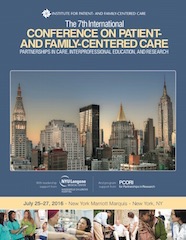
July 25-27,2016
New York, New York
Register Now
With leadership support from:
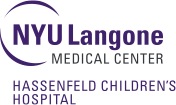
And program support for Partnerships in Research from:
Patient-Centered Outcomes Research Institute (PCORI)
|
Institute for Patient- and Family-Centered Care
6917 Arlington Road, Suite 309 • Bethesda, MD 20814
301-652-0281
www.ipfcc.org |
|
|